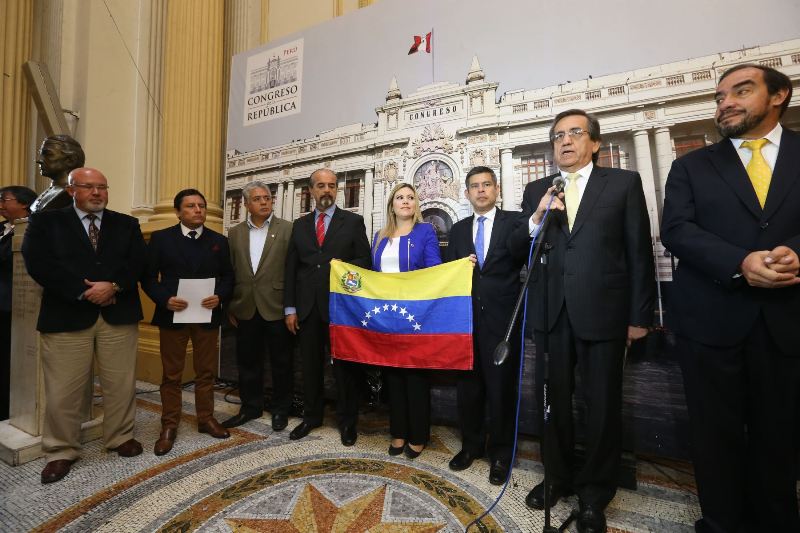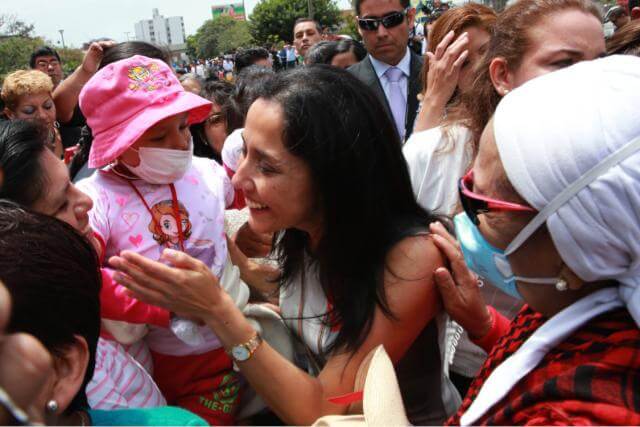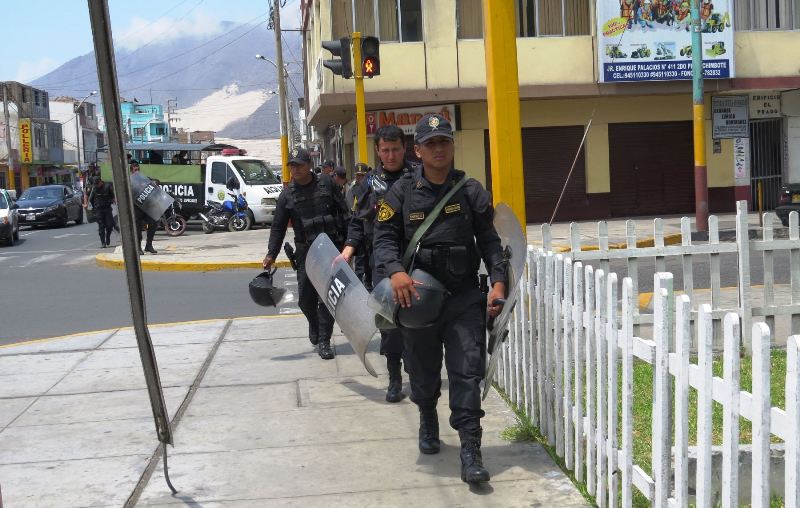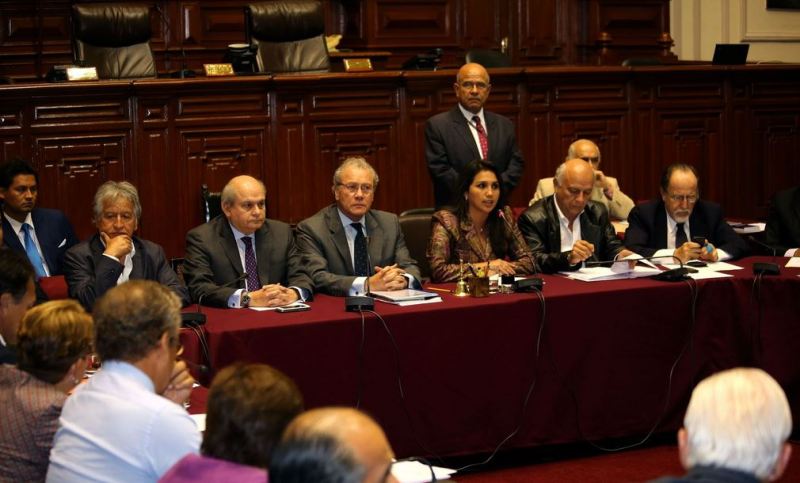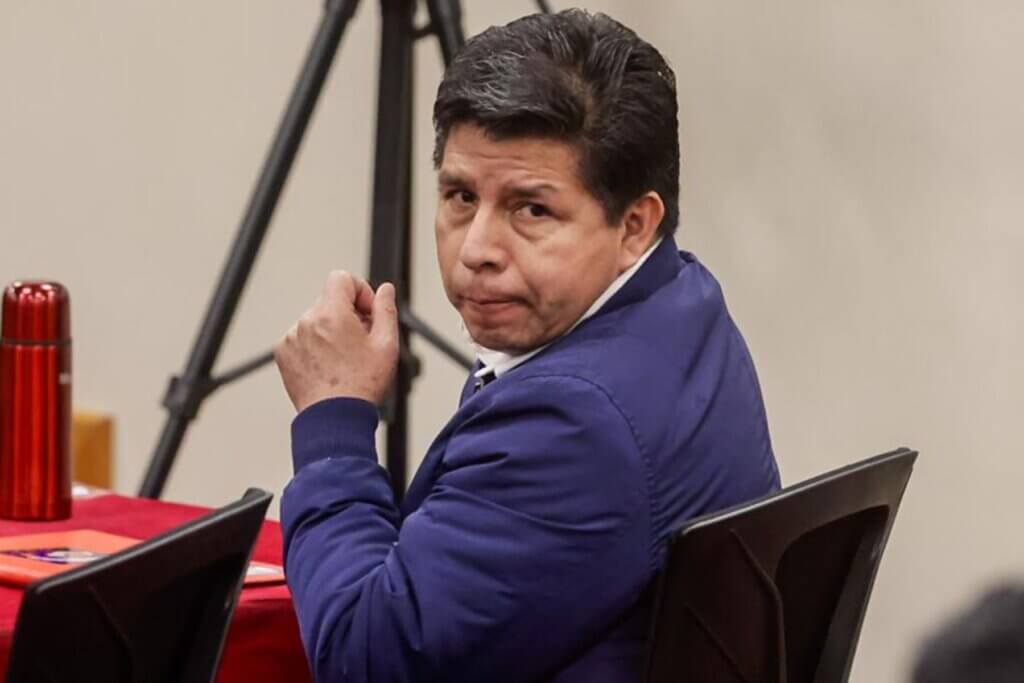UPDATE: The resolution was passed Thursday with 103 votes for, 12 votes against and six legislators abstained. All of the resolution’s opposition came from the left-wing Broad Front party.
Peru’s Congress is poised to pass a resolution condemning Venezuela’s government for violating democratic principles and suppressing opposition.
APRA congressman Jorge del Castillo on Monday submitted a resolution which criticizes Venezuela’s government led by President Nicolas Maduro. Venezuela is currently facing a political, economic and humanitarian crisis characterized by chronic food shortages, a lack of basic medicines and widespread crime and political violence.
The strongly worded resolution voices Peru’s concern over the political and humanitarian crisis in Venezuela and expresses solidarity with the opposition parliament. The motion also condemns the “permanent violation” of freedom of expression.
“This state of affairs is the culmination of the lack of democracy, political intolerance and stubbornness in misguided policies translating to the erosion of the separation of powers, restricting the freedom of expression and violation of human rights in the existence of an authoritarian and repressive regime which has turned to crime and the political persecution of the democratic opposition, which has posed a recall referendum process to which the government puts undue bureaucratic obstacles,” the document states.
The motion calls on President Pedro Pablo Kuczynski to send a delegation to assess the state of Peruvian citizens residing in Venezuela, and to repatriate any who wish to return to Peru. Finally, the document calls for the Organization of American States (OAS) to foster dialogue between Venezuela’s government and the opposition.
The proposal is signed by the official spokesmen for five of Peru’s six political parties in Congress, which represent a combined 85% of the parliament. The only party whose legislators will not vote for the motion is the leftist Broad Front party, led by Marco Arana and 2016 presidential candidate Veronika Mendoza.
“Under no circumstances will we sign a politically biased resolution … Because if it disqualifies one of the parties [in Venezuela’s political crisis], it isn’t an appropriate measure,” Arana told Peru 21.
“An ideological position does not contribute to solving the problems of Venezuela,” Arana added. “Now there is a mechanism agreed to by both sides, the government and the opposition, so that in the course of the day there is a roadmap to solve the problems. An ideological political initiative which uses emotions in favor or against mechanisms of political intervention seems to us as inappropriate.”
Arana and Broad Front drew criticism from leaders of various parties, but the sharpest came from Keiko Fujimori’s Popular Force. Mendoza and Arana’s left wing were key players in portraying Fujimori as a risk to democracy given the legacy of her authoritarian father, former President Alberto Fujimori.
Critics accuse Broad Front of hypocrisy in their failure to criticize the suppression of democracy in countries where the government is ideologically aligned with state-planned socialism.
“What about the democratic values that the Broad Front claims to defend? No doubt they are allies of chavismo,” Popular Force congressman Carlos Tubino tweeted.
“How are they going to sign if they are subordinates to Venezuela?” APRA congressman Mauricio Mulder said. “They are all talk.”
Veronika Mendoza sent markets reeling when polls showed her threatening Kuczynski for second place to qualify for a runoff against Fujimori. During the campaign she had repeatedly refused to condemn the socialist government of Nicolas Maduro, even calling the opposition “coup leaders.”
Although Kuczynski’s Peruvians for Change party garnered over 300,000 more votes than Broad Front, the distribution of the leftist party’s rural support yielded it two more seats in Congress. While Broad Front’s 20 seats make it the second strongest party, Popular Force can dominate the legislative agenda with its 56% majority of 73 seats.
The Broad Front party has suffered internal strife ever since the congressional elections between factions supporting longtime leader Marco Arana and the more popular Veronika Mendoza. However party insiders deny any divisions.
The motion against Venezuela was signed by APRA congressman and sponsor Jorge del Castillo, Popular Force spokesman Luis Galarreta, Peruvians for Change spokesman Carlos Bruce, Alliance for Progress congresswoman Marisol Espinoza, Popular Action spokesman Yonhy Lescano and APRA spokesman Javier Velasquez.
Peru 21 reports that Venezuelan opposition leader and 2013 presidential candidate Henrique Capriles will visit Peru soon for a meeting with President Kuczynski.
Sources
Cinco bancadas del Congreso presentan moción sobre situación de Venezuela (Peru 21)
Frente Amplio no firmaría moción sobre Venezuela (Peru 21)
Critican al Frente Amplio por no firmar moción sobre Venezuela (Peru 21)
Cinco bancadas presentaron moción sobre la crisis en Venezuela (El Comercio)


